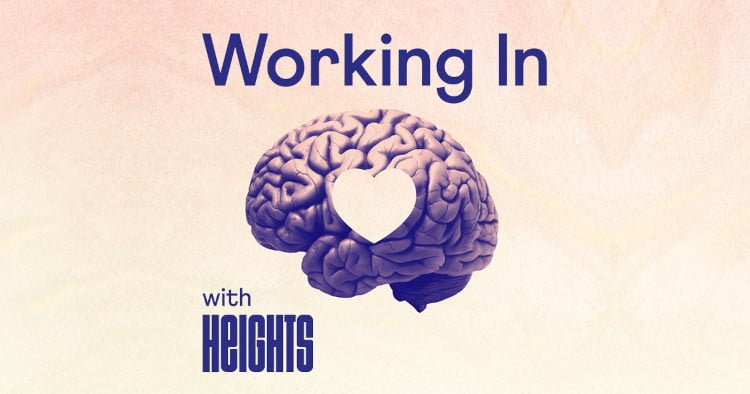Gina Rippon, a leading expert on all matters of gender, particularly of the brain, is the latest guest to join Dan Murray-Serter on the Working In with Heights podcast.
Gina was the Head of Neuroimaging at Aston University Centre for cognitive neuroscience and is the author of ‘Gendered Brain: The New Neuroscience that Shatters the Myth of the Female Brain’.
In this week’s two-part episode of the podcast Dan and Gina discuss the gendered brain concept and where this originated. Gina also shares key insights between gender and our mental health.
Explaining the origins of the terms ‘sex’ and ‘gender’, and how the term gender came to fruition in the 1980’s Gina says: “At the end of the 18th and beginning of the 19th century, you just talked about sex in terms of biological sex. At that point they were starting to understand that the brain was really the control centre of human behaviour, and researchers at that point believed very strongly that biological sex determined particular brain characteristics.
“The belief that your biological sex determined your role in life, which we now refer to as ‘gender’, was very powerful.
“Fast-forward to the 1980s when there was a second wave of feminism – this was very much focused on the idea that there was some kind of societal control over who could do what, and that’s when the term gender came in. Fast forward to this century, when we’re talking more about how entangled sex and gender are as concept.”
The gendered brain concept can be traced back to the 19th century, when it was believed by science and society that women were inferior and Gina says that’s why brain scientists thought that they needed to try and understand what it was that made women’s brains inferior.
Gina also discusses the links between genetics and mental illness and why it’s clear that there are clear gender gaps that we need to explain – “certainly with respect to depression and eating disorders, for example, this has been tied quite firmly to biology,” she says.
This week’s Working In with Heights podcast, part 1 releasing today, Friday 13 November and part 2 on Sunday 15 November, is available on Apple, Spotify and all major podcast platforms.






